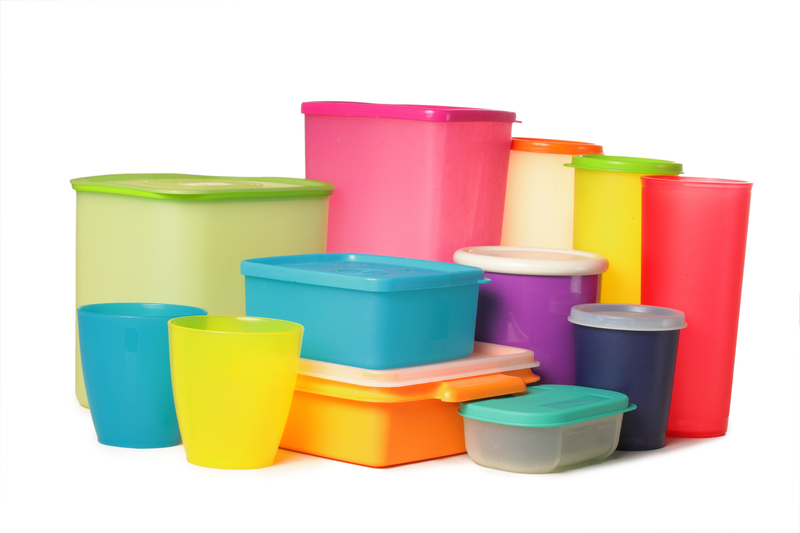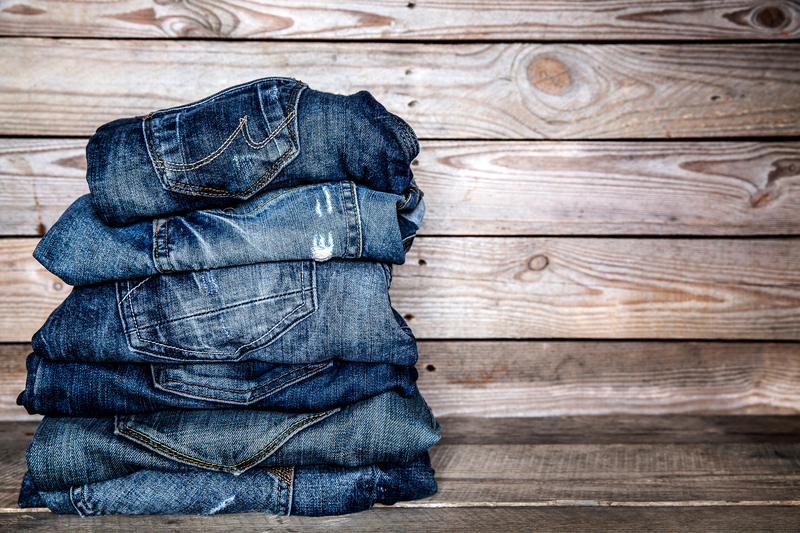Save Big on Bulky Waste Removal With These Clever Tips
Bulky waste removal doesn't have to burn a hole in your wallet. Whether you're dealing with leftover furniture, home renovation debris, old appliances, or garden waste, clearing out large and heavy items can seem daunting--and expensive! Fortunately, there are several smart strategies to cut costs on bulky trash removal while staying environmentally responsible. Read on for our comprehensive guide to saving big and keeping clutter at bay.
Understanding Bulky Waste Removal
Before diving into money-saving techniques, it's essential to know what constitutes bulky waste. In most cities, this includes:
- Old furniture (sofas, wardrobes, mattresses, tables)
- White goods (fridges, washing machines, ovens)
- Rugs and carpets
- Garden waste (large branches, garden sheds, fencing panels)
- Renovation debris (fixtures, bathtubs, worktops)
Standard curbside collection services typically won't accept items considered too large or heavy, which often leaves homeowners seeking specialized, and often expensive, solutions. But with the right approach to bulky waste disposal, you can manage costs and reduce environmental impact at the same time.

Key Factors Affecting the Cost of Bulky Waste Removal
If you want to save money on bulk waste disposal, it's helpful to understand what influences the price:
- Quantity and volume: Larger loads mean more labor and higher tipping fees.
- Accessibility: Items that are difficult to access or require special handling incur extra charges.
- Location: Urban areas may offer more competitive prices due to higher service availability.
- Type of material: Hazardous wastes often carry surcharges.
- Frequency of pickup: One-off clearances may be pricier than scheduled pickups.
With those in mind, let's explore actionable ways to minimize your bulky rubbish removal costs.
Top Money-Saving Tips for Bulky Trash Removal
1. Reuse and Repurpose Whenever Possible
Before you call a removal service, assess whether your bulky items can find a second life either in your own home or someone else's. Upcycling old materials saves money and waste.
- Refurbish old furniture with a coat of paint, new upholstery, or minor repairs.
- Repurpose large pieces into DIY projects, like turning an old ladder into shelving or a pallet into a coffee table.
- Donate usable items to local charities, schools, or community groups, many of which can arrange free pick-up.
Don't forget: Not only does reusing and repurposing save you disposal fees, but it also helps the environment by reducing landfill waste.
2. Sell or Give Away Bulky Items Online
One person's trash is another person's treasure. Leverage online platforms to offload unwanted bulky items for free or profit:
- Facebook Marketplace, Craigslist, and Freecycle are ideal for local giving or selling.
- List your items with honest descriptions and clear photos.
- Highlight your preference for self-collection to avoid haulage costs.
- Price to move--consider offering items for free to ensure quick removal.
Tip: Schedule pickups when you are home to avoid security concerns, and prioritize safety when arranging handovers.
3. Check for Local Council Bulky Waste Collection Services
Many municipalities offer free or subsidized collection days for bulky rubbish, often on a quarterly or annual basis. Check your local council's website for details:
- Prebook your slot as these fill quickly, especially during popular spring/summer clean-up periods.
- Adhere to item limits and requirements (e.g., bundling, labeling hazardous materials).
- Some councils offer recycling schemes for specific item categories, such as electronics or mattresses.
Pro Tip: If you have neighbors also disposing of bulky items, coordinate removal on the same day to split costs for additional items beyond the free allowance.
4. Use "Man and Van" Services for Flexible Options
Instead of larger, more expensive junk removal services, consider hiring a local "man and van" business. This option is usually:
- More flexible regarding schedules and item types
- Generally cheaper for smaller loads or unique, oversized items
- Open to negotiation, especially if you have more than one item or can guarantee easy access
Request quotes from multiple providers and clarify what is included (e.g., loading, recycling, landfill fees).
5. Pool Resources With Neighbors
If you're not the only one with bulky waste to get rid of, organizing a community clean-up is a fantastic way to reduce costs:
- Rent a skip or large dumpster as a group and split the bill.
- Arrange a collective "man and van" collection day for the street or block.
- Bulk bookings can attract group discounts from service providers.
Not only does this save money, but it also builds community spirit!
6. Take Items Directly to a Household Waste Recycling Centre
If you have transportation, most council-operated recycling centers accept bulky items for free or a nominal fee. To save on bulky waste disposal costs this way:
- Borrow or hire a van for larger items--some local authorities even provide van hire for residents at a discount.
- Sort and separate items in advance to avoid delays and possible charges.
- Double-check center requirements for proof of residency and permitted item types.
Tip: Always use safety equipment and ask for help with heavy lifting to avoid injury.
7. Schedule Removals Off-Peak
Just like travel and tradespeople, bulky waste removers can charge more during peak times (e.g., spring cleaning season or weekends). If your schedule allows, book services midweek or during off-peak months for the best prices.
8. Reduce, Dismantle, and Combine Loads
The simplest way to save on bulky junk removal is to shrink your load:
- Take apart flat-pack furniture, beds, or shelving units, so they take up less space and cost less to remove.
- Bag up smaller loose items to keep your collection as compact as possible.
- Combine loads (e.g., kitchen and garden waste) to fill the van in a single trip and avoid multiple fees.
Bonus: Compacting your load often qualifies you for a lower price tier or quicker service.
9. Beware Hidden Fees
Always read the fine print before booking a removal service. Look out for:
- Surcharges for certain materials (e.g., mattresses, white goods, hazardous items)
- Extra fees for stairs or difficult access
- Fuel and disposal charges
- VAT (where applicable)
Transparency is key--ask for a written quote and get clarification on what's included.
10. Consider Skip Bag Alternatives
If you have a manageable amount of bulky waste, skip bags (large, heavy-duty sacks for hire) can be an affordable alternative to skips or full removal services. Their benefits include:
- Lower typical hire rates
- No need for permits for placement on private property
- Flexibility--you load at your own pace, then schedule collection
Compare local suppliers and check bag size limits before ordering.
Environmental Considerations When Disposing of Bulky Waste
Saving money shouldn't come at the expense of our planet. Always prioritize eco-friendly disposal options:
- Recycle wherever possible. Separate metals, electronics, and woods.
- Never fly-tip! Illegal dumping leads to heavy fines and environmental harm.
- Use licensed waste carriers only to ensure safe, legal, and proper disposal.
Many bulky waste collection services now commit to recycling a high percentage of collected materials. Ask about their sustainability policies before booking.

Frequently Asked Questions
What Should I Do With a Bulky Item in Good Condition?
Sell, donate, or give away before considering disposal. Many charities can collect large items, and online platforms help you find locals in need.
Is It Cheaper to Hire a Skip or a Removal Service?
For larger, ongoing projects, skips may offer better value--especially if costs are shared. For smaller loads or one-off disposals, a "man and van" service can be cheaper and more convenient.
What Items Are Not Accepted for Collection?
Hazardous and medical waste, car parts, and certain electronics may be prohibited. Always check with your removal provider or local council before booking.
Can I Get Help Loading Bulky Items?
Professional removal services include loading, but DIY disposal requires you to provide muscle--bring friends or hire help if needed. Always prioritize safety.
Conclusion: Save Big and Stay Green With Smart Bulky Waste Removal
Tackling bulky item disposal doesn't have to be expensive or stressful. With a little planning, community coordination, and creative thinking, you can reduce your bulky waste removal costs while acting in the best interests of both your wallet and the environment. Remember to investigate reuse and recycling options first, leverage local resources, and compare prices for every option.
Start saving big on bulky junk removal today by putting these savvy tips into action. A clutter-free, cost-effective home awaits!
